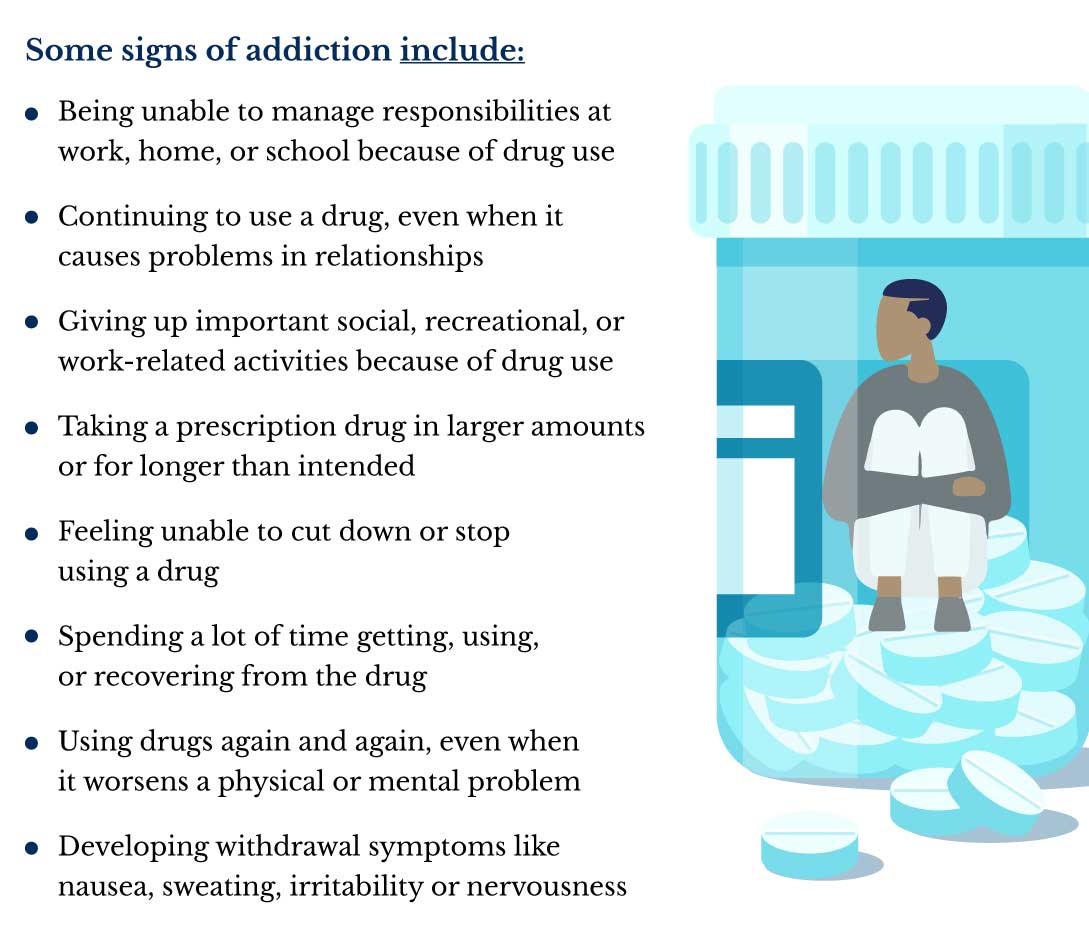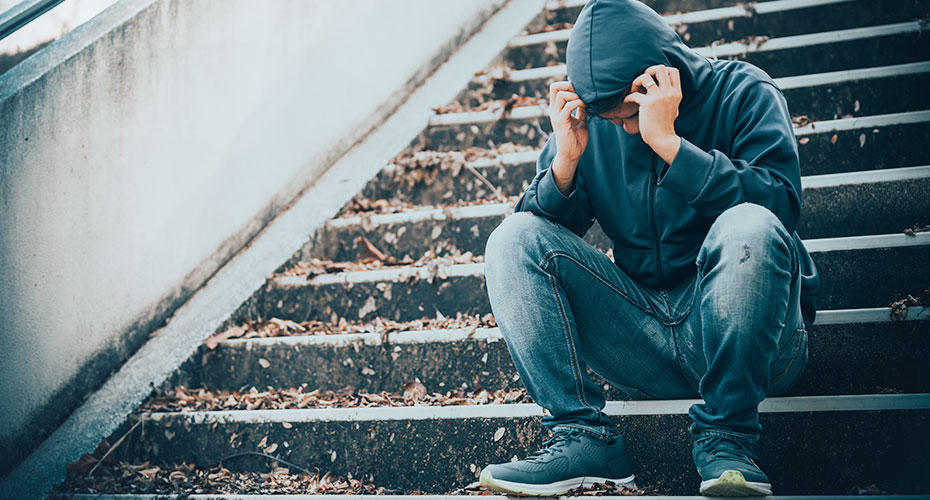Feb 5, 2021
How to recognize signs of substance use — and how to help
Recognizing signs and seeking help for substance use can help stem a dangerous trend, clinicians say, as rates of addiction and overdose have risen amid the pandemic.
“If you think about the biological roots of addiction, it makes sense that there's an increase in substance use," said Dr. Ken Duckworth, chief medical officer of the National Alliance on Mental Illness. "The pandemic has put enormous stress on people and deprived them of some of their autonomy, their human connections, and the routines they've developed to sustain their sobriety."

A dangerous trend
Forty percent of U.S. adults are struggling with mental health or substance use, a CDC survey found, and 13% said they started or increased substance use. More than 40 states reported increases in opioid-related deaths during the pandemic, according to the American Medical Association.
The pandemic has deepened a long-running crisis, Duckworth said: Between 1999 and 2018, more than 750,000 people in the United States died from drug overdoses, and an estimated 21 million Americans have at least one addiction.
Some services, such as 12-step programs like Alcoholics Anonymous and Narcotics Anonymous, are now entirely online, making them more accessible to some -- but less to others, who may not have internet access or may be uncomfortable connecting online.
“We know the numbers are up in terms of overdoses, and with the pandemic, some services are not as available as they were before,” Duckworth said. “People are facing isolation and financial stress.”
What to look for
Friends and family can help, said Duckworth. The first step is recognizing a problem.

But spotting a relapse or new addiction may be more difficult during the pandemic, when families and friends are often separated, able to connect only by phone or online.
Signs of trouble may appear as subtle cues and changes in behavior, Duckworth said. For example, it might be telling if someone is less responsive, seemingly more isolated, or is suddenly asking for money.
For those checking in on people who have battled addiction in the past, “the key is to recognize the clues from prior behavior,” Duckworth says. “It’s a chronically relapsing condition.”
Helpful tools
Duckworth recommends concerned loved ones use the CRAFT model – Community Reinforcement and Family Training – an approach based on:
- Improving the life of the person who may be using
- Reducing the addictive behavior
- Influencing the person to begin addiction treatment.
CRAFT helps family and friends learn to ignore using behavior, reward non-using behavior and discontinue enabling.
Blue Cross has rolled out new initiatives to provide additional support to members living with substance use disorder: a partnership with AWARE Recovery Care to offer in-home treatment, and the addition of recovery coaches to its hospital incentive programs.
Recovery coaches are trained professionals, typically with lived experience, who provide peer support to those in treatment and recovery for substance use disorder. Blue Cross is providing eligible hospitals and facilities with financial support for offering recovery coach programs, Duckworth said.
The COVID-19 pandemic has added new challenges for anyone struggling with addiction, “We want to do everything we can to make it easier for them to get the care they need.
PHOTO OF Dr. KEN DUCKWORTH BY FAITH NINIVAGGI

